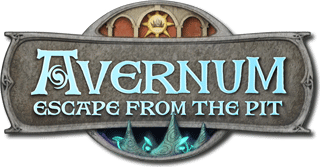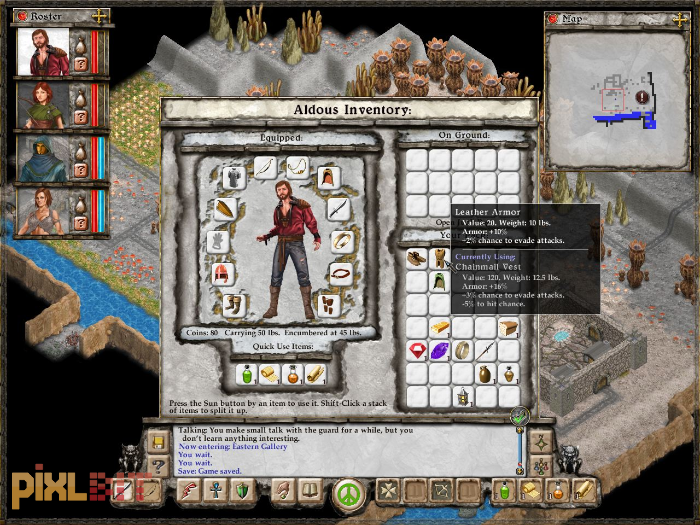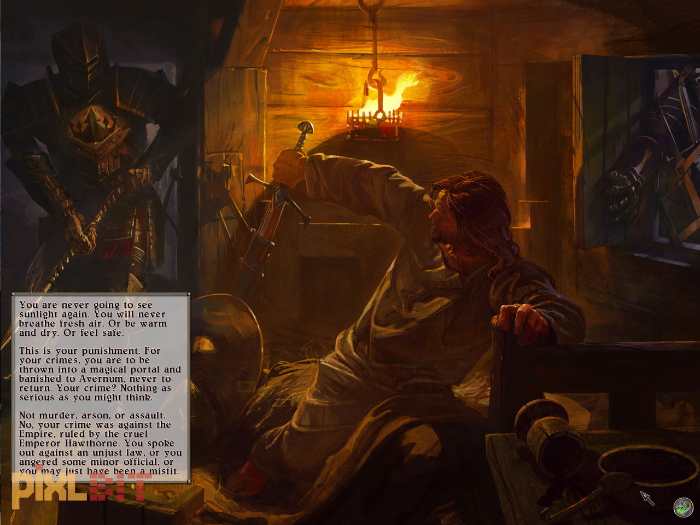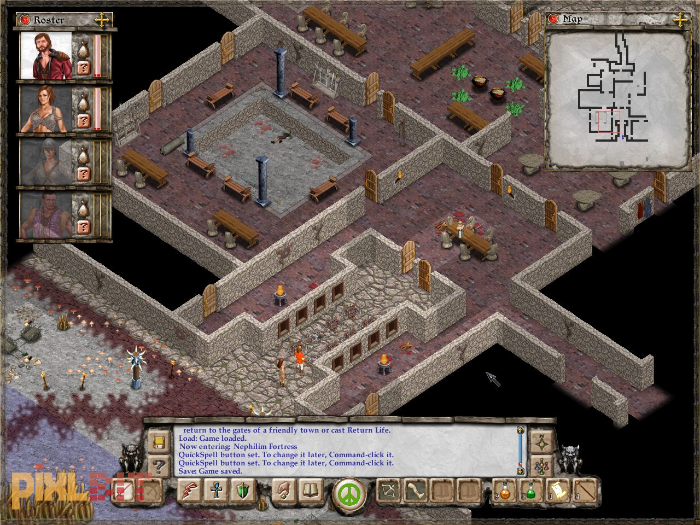This was an awesome featurette. Loved the interview too! And to think I've never played an rpg from Spiderweb. I feel like an ignorant turd now. lol.
Spiderweb Software 20th Anniversary Interview with Jeff Vogel
In business for almost twenty years, Spiderweb Software is still going strong. In honor of this milestone, they have answered some of our questions about game development, and what it's like to be indie.

With over two decades of experience making games and a record of being independent before indie games were a trend in the gaming world, Spiderweb Software is the hardcore for the hardcore. Makers of such classic series as Geneforge, Avernum, and now Avadon, the company focuses on old school RPG experiences that most publishers and developers have abandoned.. While they primarily focus on the PC and Mac platforms, they recently experimented with mobile development, releasing Avadon and Avernum to iOS and Android with stunning success. It seems classic games are classic no matter what system they’re played on.
Spiderweb games are both huge and story-driven, focusing on freedom above all other things. As part of their twentieth anniversary, they are currently featured as the Humble Bundle Weekly Deal where you can pay what you want to get many of their classics (offer ends Thursday, July 18). We had an opportunity to interview Jeff Vogel, founder of Spiderweb Software, and discuss the company as well as their business and design philosophies. Be sure to check out his answers below and leave some feedback in the comments if you enjoyed this interview!
PixlBit: First of all, what games got you into gaming, and when did it hit you that you could do this yourselves?
Jeff Vogel (Founder of Spiderweb Software): I am very old. The first computer role-playing game I tried was Eamon, in 1980 or so. The first game I really, really got into was Wizardry: Proving Grounds of the Mad Overlord in 1983. Playing that was the point my destiny was assured. I wrote games all through childhood, but I only made a real effort to write a real game when I was in grad school at age 24.
PB: Your games hearken back to a previous, more innocent era in game development, and they seem to still carry that promise that the medium can take us away to wondrous but dangerous worlds where anything can happen. What are some of the keys to your design philosophy, and how do you manage to retain this magic today?
JV: I always write the sort of game I want to play. I play a lot of games, and, when one compels me in some way, I break down the qualities that really appeal and try to incorporate that myself. However, it is a very, very personal process. I’m just lucky that the things I like other people like too. I always like to put in lots of detail. I think lots of different things should happen. I think the player should have choices and be able to shift the ending. In a big game, there should be both tragedy and humor. Those are some big principles for my design.

PB: Your games encourage the player to create their own morality and storylines – they inhabit very gray worlds, as opposed to the black and white universes of so many games. Do you think this is a natural result of true open worlds or a goal of your development process?
JV: I don’t write open worlds, and there is nothing about an open world that forces one sort of storytelling or another. It’s just a structure, and you can put anything in that. It’s definitely a goal in my process. The first thing I write in any game is the story, and I concentrate from day one on making a story with lots of decisions, branches, and interesting ideas.
PB: You offer long demos, a money-back guarantee, and have no DRM. Do you think people feel more comfortable giving money to a company they feel they can trust?
JV: Of course. But I’m not actually thinking about trust. I’m thinking about likeability. When you run a small indie business, I think it is hugely important to, as much as possible, make the audience have affection for you. It keeps them from pirating your games, for a start, and it helps you to build a fan base and an audience, which is an absolute necessity.

PB: I noticed on your website that you have an open call out for digital assets, like icons, characters, and monsters to use in your games. Is this something you’ve always done? What’s the intent behind it and how does change your development strategies?
JV: We’ve always done that. We need freelance artists, and we let people know we have our doors open. It’s really no different from any company posting jobs listings. We just let artists know that they can always send us a portfolio.
PB: You released Avadon and Avernum games onto the iPad this year. Has that been successful for you, and are you planning to expand to other platforms as consoles and handhelds become more indie friendly?
JV: The iPad has been terrific for us. Two of our games were ported to Android, and that’s done very well too. I love gaming on tablets, and many other people do, too. However, I’m not very excited about learning to develop for new platforms myself. I only have one brain, and it’s already kind of full.

PB: Your new Avadon game, Avadon 2: The Corruption is set to come out in the fall. What sets it apart from earlier games you’ve done?
JV: Avadon 2: The Corruption will be the second game in the Avadon trilogy, and it will continue to tell that story. It will have a new character class, new abilities, and a lot of improved graphics, but it will still very recognizably be the successor to Avadon. Avadon was a huge hit for us, and we’re thrilled to have the opportunity to continue that storyline. It should be out in three months or so. And, once again, you will be a Hand. Unlimited resources, your word is law, and you will have to crush the barbarians who threaten your nation. That basic setup leads to a lot of interesting carnage and decisions for the player.
PB: You’ve been operating for twenty years now. What would you like to accomplish in the next 20 years, and what kind of games do you want to make that you haven’t yet made?
JV: I like story-heavy single-player turn-based role-playing games. It’s a niche that I’m good at filling. It’s also an evergreen sort of game. There will always be a demand for it, but most developers don’t seem to be interested. So, for the next 20 years, I’ll write more of the same. But slower. I’m getting older and more burned out.
PB: What would you like gamers who haven’t heard about you before to know about you, and is there anything you would like to say to them?
JV: We write really good role-playing games. The graphics are simple, but the stories and gameplay are excellent. We care about the customer. And, if you’re curious, there is a big, free demo of each of our games on our web site.





Comments